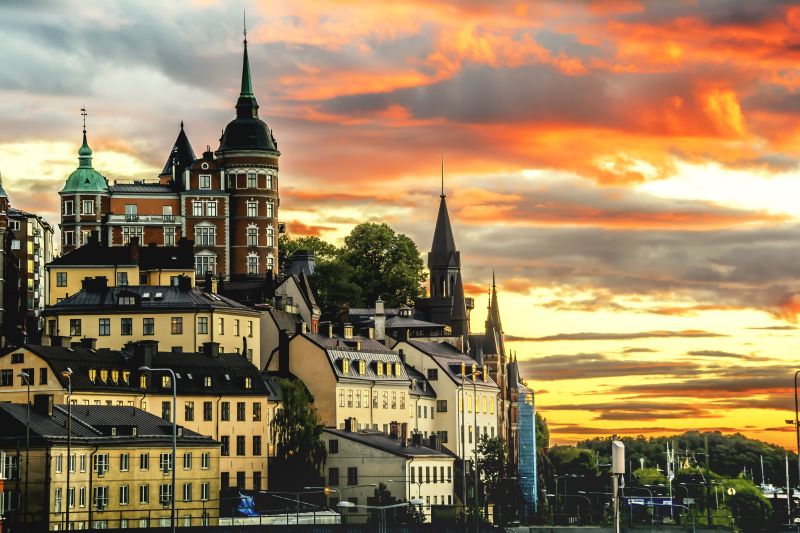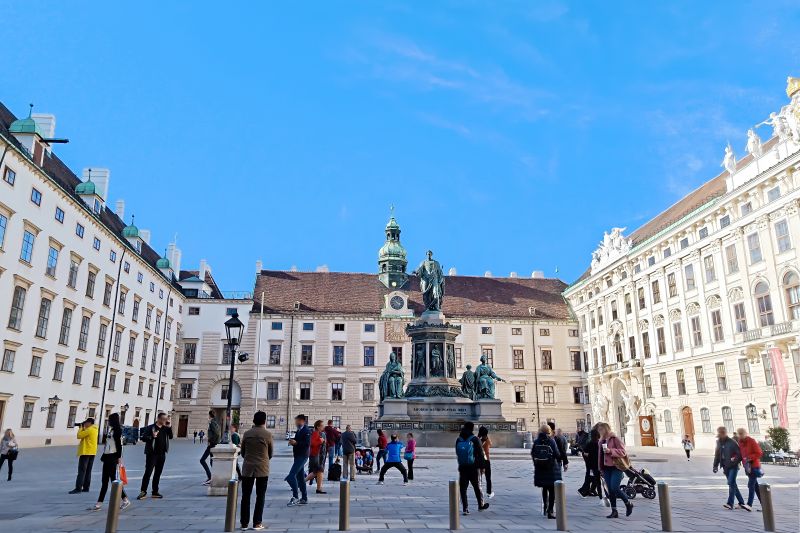Germany Tourism during Covid: Impact, Restrictions, and Quarantine Requirements
Time:2024-04-26 Page View:515
Germany is a popular tourist destination known for its rich cultural heritage, stunning landscapes, vibrant cities and warm hospitality. However, due to the Covid-19 pandemic, the tourism industry in Germany has been hit hard, with travel restrictions and safety concerns restricting international travel. In this article, we will explore the current state of tourism in Germany amidst the Covid-19 crisis and provide some insights on how tourists can still enjoy the best of what this country has to offer.
Despite the challenges posed by the pandemic, Germany has taken extensive measures to mitigate the impact on its tourism industry. The government has implemented strict health and safety protocols in hotels, restaurants and tourist attractions, and is continuously updating its guidelines to ensure a safe and enjoyable experience for tourists. Additionally, there are various online resources available to help tourists plan their trip and stay up-to-date with any changes to travel regulations or restrictions. Furthermore, there are many outdoor activities and attractions in Germany that allow tourists to practice social distancing and still enjoy the beauty and culture of this country. So, while Covid-19 has created obstacles for tourism in Germany, there are still ways for visitors to experience the best of what this wonderful country has to offer.
What are the current travel restrictions in Germany due to Covid?

With the ongoing Covid-19 pandemic, many countries have implemented measures to control the spread of the virus. Germany is no exception. In this article, we will explore the current travel restrictions in Germany and their impact on travelers.
1. Entry Requirements for Travelers
Germany has varying entry requirements depending on the country of origin and the reason for travel. As of September 2021, travelers coming from high-risk areas must present a negative Covid-19 test result taken within 72 hours prior to arrival. They must also undergo quarantine for 10 days or test negative twice during the quarantine period. Additionally, travelers arriving from designated virus variant areas are subject to stricter measures.
Exemptions to these requirements apply to fully vaccinated individuals or those who have recovered from Covid-19 in the last six months. They must provide proof of vaccination or recovery and do not need to undergo quarantine or testing.
2. Public Health Measures in Place
Germany has implemented strict public health measures to prevent the spread of the virus. These measures include mandatory mask-wearing in public spaces, social distancing of at least 1.5 meters, and frequent hand washing and sanitizing. Failure to follow these measures may result in fines.
Additionally, certain regions in Germany have imposed stricter measures such as curfews, restrictions on gatherings, and closures of non-essential businesses.
3. Impact on Tourism and Travel Industry
The travel restrictions in Germany have greatly impacted the tourism and travel industry. The number of international visitors has significantly decreased, and many travel businesses have suffered economic losses.
However, the government of Germany has implemented measures to support the industry such as financial aid, tax relief, and loosening of regulations.
4. Future Outlook and Changes
The situation surrounding Covid-19 is constantly evolving, and travel restrictions in Germany may change accordingly. Additionally, the emergence of new virus variants may necessitate stricter measures. It is important for travelers to keep up to date with the latest regulations and guidelines.
The German government continues to prioritize public health and safety, and measures such as vaccination campaigns and testing are being implemented to combat the spread of the virus.
Are there any quarantine requirements for tourists visiting Germany during Covid?

As the world slowly recovers from the COVID-19 pandemic, travel restrictions are being lifted, and people are eager to explore new places once again. But before packing your bags and heading to Germany, it's essential to know if there are any quarantine requirements for tourists visiting the country during COVID-19. In this article, we will discuss everything you need to know about quarantine regulations for tourists in Germany.
1. Entry Restrictions for Tourists
Germany's entry regulations vary depending on your country of origin, the level of transmission in your region, and your vaccination or recovery status. As of September 2021, a few countries, including India, Nepal, and the UK, are designated as high-risk areas. If you are traveling from a high-risk area, you must have a negative test result, proof of vaccination or recovery, and complete the digital entry registration upon arrival in Germany.
Additionally, travelers from countries with a low incidence of COVID-19 are allowed to enter Germany without any restrictions. However, if you are traveling from any other country, you must comply with certain restrictions.
2. Quarantine Requirements for Tourists
If you are traveling from a risk area and do not have any documentation of vaccination or recovery, you must take a COVID-19 test before arriving in Germany. Once you arrive, you must quarantine for ten days, regardless of the test's results. However, if you test negative for COVID-19 after five days of arrival, you can be released from quarantine.
If you are vaccinated or recovered from COVID-19, you may skip the test and quarantine requirements upon entering Germany. However, you still have to fill the digital entry registration.
3. COVID-19 Testing for Tourists
Even if you don't have to quarantine after entering Germany, you may be required to take a COVID-19 test during your stay. Most hotels in Germany offer on-site testing facilities at additional costs. However, the price of a PCR test in Germany can vary depending on the location, ranging from €60 to €150 per test.
4. Mask-Wearing and Social Distancing in Germany
Regardless of your vaccination status, mask-wearing is mandatory in Germany, both indoors and outdoors. In public transportation, shops, and enclosed public spaces, you must have a medical-grade mask. Social distancing measures, such as maintaining a distance of at least 1.5 meters from other people, must be followed.
Are there any quarantine requirements for tourists visiting Germany during Covid?

With the world still grappling with the Covid-19 pandemic, travel restrictions continue to exist in almost every country. While many people are itching to explore new destinations, they are often unsure about the guidelines in place regarding quarantine requirements. For those planning a trip to Germany, it's important to be aware of the current regulations in place.
1. Travel Restrictions
Currently, travelers from countries designated as high-risk areas must undergo quarantine when entering Germany. These guidelines vary based on the location of travel and are subject to change. It is advisable to check the current restrictions on the official websites of the German government or the Federal Ministry of Health.
Moreover, travelers are required to complete a pre-registration form before arriving in Germany. This form includes personal information, contact details, and travel information to help with tracking and contact tracing. Failure to comply with this requirement may result in denied entry to Germany.
2. Quarantine Guidelines
Travelers from high-risk areas are obligated to quarantine for ten days upon arrival in Germany. However, this can be shortened to five days if a negative Covid-19 test is presented. The test must be taken no earlier than five days after arrival in Germany. The test and quarantine requirements may differ depending on the state in which you're staying, so it's best to double-check with local authorities.
Apart from this, all individuals staying in Germany must adhere to social distancing guidelines, wear masks in public where necessary, and follow good hand hygiene practices to curb the spread of the virus.
3. What to Expect at the Airport
Upon arrival in Germany, travelers can expect to be subject to health screenings, including temperature checks, and questions about any Covid-19 symptoms or exposure. Depending on the test results, travelers may have to undergo additional testing or quarantine requirements.
Furthermore, airlines may require additional documentation before boarding the flight to Germany. This may include proof of vaccination, a negative Covid-19 test result, or an official health declaration form. The requirements may vary, so it's best to check with the airline ahead of the scheduled flight.
4. Getting around in Germany
While travel restrictions in Germany are slowly easing, it's essential to note that social distancing guidelines and mask-wearing remain mandatory on public transportation and in public spaces. Failure to adhere to these guidelines may result in fines or penalties.
It's also crucial to keep track of the latest updates regarding travel restrictions as they can change from time to time and vary depending on the destination within Germany.
How has Germany tourism been affected by Covid?

The Covid-19 pandemic has caused significant disruptions in tourism worldwide. One of the countries heavily impacted is Germany, one of the most popular tourist destinations in Europe. In this article, we will explore how Covid-19 has affected Germany tourism.
1. Travel restrictions and cancellations
The German government imposed travel restrictions to curb the spread of Covid-19. These restrictions include closing the country's borders to non-essential travel and quarantine requirements for travelers from high-risk countries. As a result, thousands of travelers had to cancel their trips to Germany, resulting in a significant decline in tourism revenue.
Moreover, airlines and tour operators have canceled their flights and tours due to the pandemic. The fear of getting infected, coupled with travel restrictions, has led to a sharp drop in international arrivals in Germany.
2. Impact on accommodation providers
The pandemic has severely impacted the accommodation industry in Germany. Hotels, guesthouses, and holiday apartments had to close their doors temporarily, leading to a significant loss of income.
To cope with the situation, many hotels and other accommodations introduced strict hygiene measures to provide a safe environment for guests. However, even with these measures in place, occupancy rates remained low as tourists were cautious about traveling during the pandemic.
3. Effect on tourist attractions and events
The pandemic has also impacted tourist attractions and events in Germany. Many museums, galleries, and historical sites were closed to limit the transmission of the virus, and those that remained open saw a sharp decrease in visitors.
Social distancing requirements and limitations on large gatherings have also affected the event industry. Many festivals, concerts, and other events were canceled or postponed, leading to a further decline in tourism revenue.
4. Support measures for the tourism industry
The German government has introduced several measures to support the tourism industry during the pandemic. These include financial aid for tourism businesses, tax relief, and subsidies for maintaining employment. Moreover, the government has launched a campaign to promote domestic tourism to help offset the loss of international visitors.
Despite these measures, the outlook for the German tourism industry remains uncertain, as the duration and severity of the pandemic continue to affect the industry's recovery.
5. Future implications
The pandemic has highlighted the fragility of the tourism industry and the need for more resilient models. Going forward, the industry will need to place greater emphasis on safety and hygiene measures to reassure travelers and restore their confidence in travel.
The crisis has also accelerated the trend towards sustainable tourism, with demand for eco-friendly and socially responsible travel predicted to increase in the post-pandemic world. The industry will need to adapt to these changes to remain competitive and relevant.
How has Germany tourism been affected by Covid?

The Covid-19 pandemic has had a devastating impact on the worldwide tourism industry, and Germany's tourism sector is no exception. With travel restrictions, border closures, and quarantine requirements, the number of international travelers has plummeted. The pandemic has disrupted Germany's bustling tourist industry and caused economic hardship for those working in the sector.
1. Changes in German tourism
Before the pandemic, Germany was one of the most popular tourist destinations in Europe, attracting nearly 90 million visitors per year. However, the pandemic has changed the face of German tourism dramatically. Tourism-related businesses such as hotels, restaurants, and tourist attractions have experienced a severe decrease in revenue since the start of the pandemic. Social distancing measures and restrictions on business hours have compounded the financial losses, forcing many businesses to close their doors permanently.
Moreover, most events and festivals have been canceled, including the world-famous Oktoberfest in Munich, which typically attracts millions of visitors. This has dealt a significant blow to Germany's tourism industry and its economy as a whole.
2. Impact on the German economy
Tourism plays a critical role in Germany's economy. It contributes significantly to the country's GDP and provides employment for millions of people. According to the Federal Statistical Office (Destatis), in 2019, travel and tourism generated €294.8 billion in revenue, accounting for 7.4% of Germany's GDP. The pandemic-induced decline in tourism has led to a dramatic loss of revenue for the industry and, consequently, the German economy as a whole.
Many countries have placed restrictions on travel to Germany, causing a decline in travel and tourism activity. The decrease in tourist spending has resulted in massive losses for businesses such as hotels, restaurants, and souvenir shops, which have been forced to cut jobs or close altogether. The International Air Transport Association (IATA) has predicted that the number of global air passengers in 2020 will decrease by 66% compared to 2019, leading to a loss of $419 billion in income for the aviation industry.
3. Efforts to revive German tourism
The German government has implemented various measures to boost the country's tourism industry. The Federal Government has provided significant financial support, including loans, grants, and aid packages, to help businesses stay afloat during the pandemic. In addition, the German National Tourist Board (GNTB) has launched several marketing campaigns to promote Germany as a safe tourist destination and attract domestic travelers.
The GNTB has also developed comprehensive hygiene protocols to ensure the safety of visitors. For instance, hotels must provide hand sanitizers, have contactless check-in, and follow strict cleaning and disinfection procedures.
4. Challenges ahead
The pandemic continues to pose significant challenges to the German tourism industry, and it is unlikely to recover overnight. As long as travel restrictions remain in place, international tourism will continue to suffer, putting pressure on many businesses, especially small-and-medium-sized enterprises, that depend on tourism for their survival. Additionally, many potential visitors remain wary of traveling, even when restrictions lift.
It is probable that the 'new normal' in post-Covid tourism will include significant changes in consumer behavior, such as a preference for domestic travel and outdoor activities and an emphasis on hygiene and cleanliness standards. Adapting to these changes will be crucial for the industry's recovery.
Has the tourism industry in Germany adapted to Covid? If so, how?
The Covid-19 pandemic has affected the global travel and tourism industry like never before. Among all the chaos, the German tourism industry has shown immense resilience by adapting to the new normal. In this article, we will explore the ways in which the tourism industry in Germany has adapted to Covid-19 and what solutions have been implemented to ensure the safety and wellbeing of travelers.
1. Travel Restrictions and Safety Protocols
One of the key strategies adopted by the German tourism industry to mitigate the effects of Covid-19 was imposing strict travel restrictions. Initially, Germany banned entry for travelers from high-risk areas. Later on, these restrictions were replaced with measures such as mandatory quarantine, negative test results, and border closures.
The tourism industry also implemented strict safety protocols, including social distancing, mandatory mask-wearing, and frequent sanitization of public spaces. Additionally, accommodations have implemented contactless check-ins and have increased their cleaning standards to ensure the safety of guests.
2. Digitalization and Virtual Tours
The tourism industry in Germany has embraced digitalization like never before. Several travel companies have launched virtual tours and experiences, allowing travelers to explore various parts of the country from the comfort of their homes. This innovative solution not only helps travelers experience Germany's culture and heritage without the risk of travel but also supports travel companies and local businesses during a difficult time.
Digitalization has also helped streamline travel planning processes. Apps and websites provide live information about travel restrictions, safety protocols, and updates on the latest developments, making it easy for tourists to adjust their travel plans accordingly.
3. Sustainable and Local Tourism
The pandemic has provided an opportunity for the travel industry to reevaluate its practices and adopt more sustainable and local tourism practices. In Germany, some travel companies have shifted their focus from offering mass tourism experiences to supporting smaller local businesses by promoting off-the-beaten-path destinations.
This new approach has led to improved relationships between travel companies and local communities, ultimately resulting in a more sustainable and eco-friendly tourism industry.
4. Domestic Tourism
The pandemic has had a significant impact on international travel, leading to a surge in domestic tourism. The German tourism industry has capitalized on this trend by promoting domestic travel destinations heavily. This approach has helped balance the effect of the travel restrictions imposed due to Covid-19 and provided opportunities for local businesses to thrive.
This surge in domestic travel not only benefits the industry but also promotes cultural exchange between different regions of Germany and supports sustainable tourism practices.
5. Flexibility and Compassionate Policies
Last but not least, the German tourism industry has shown immense flexibility and compassion during these trying times. Many travel companies have introduced flexible booking policies, allowing tourists to change or cancel their travel plans without incurring any penalty fees.
Furthermore, the industry has prioritized the safety and wellbeing of its employees. Several organizations have implemented compassionate policies such as providing financial support for workers who have been impacted by the pandemic.
What is the current outlook for Germany's tourism industry during Covid?
With the ongoing Covid-19 pandemic, many industries have been negatively impacted, and the tourism industry is no exception. Germany, being one of the most visited countries in Europe, has seen a significant decrease in tourism since the start of the pandemic. In this article, we will explore the current outlook for Germany's tourism industry during Covid-19, including the challenges it faces and the measures being taken to overcome them.
1. Travel Restrictions in Germany
Germany has imposed travel restrictions to control the spread of the virus. As a result, many people cancelled their trips and vacations that were planned ahead, even if the country that they were initially supposed to visit was not under restrictions. The Federal Foreign Office has issued a travel warning for over 160 countries worldwide, including popular travel destinations such as Spain, Italy, and France. Restriction measures such as the mandatory quarantine of 14 days for arrivals from high-risk areas also discouraged people from traveling to Germany.
Furthermore, several events and celebrations were also cancelled, including Oktoberfest, which usually attracts millions of tourists. These cancellations lead to significant financial losses for many businesses such as restaurants, hotels, and other tourist attractions.
2. Impact on Local Economy
The tourism industry is a significant contributor to the German economy, responsible for generating over 9% of the country's Gross Domestic Product (GDP) and providing jobs for approximately three million people. Due to the reduction of international and domestic travels, many hotels and restaurants have closed, and many workers have lost their jobs. The impact is felt significantly in regions heavily dependent on tourism, such as Bavaria and Brandenburg.
Tourism is a significant source of revenue for local businesses, and since the pandemic's outbreak, many have struggled to make ends meet. Even with government support provided to businesses affected by the pandemic, many will not survive without tourism. With the winter season approaching, it is essential to find ways to bring tourism back safely to stimulate the local economy.
3. Measures Being Taken
The German government has taken several measures to revive the tourism industry. One of these measures is to provide financial support to businesses that have been impacted by the pandemic. The Federal Government has set up a rescue package worth €1.1 billion to support tourism-related businesses. Interest-free loans, grants, and wage subsidies are also provided to assist businesses in surviving the pandemic's impact.
The government has also introduced initiatives to promote domestic tourism in the country. Germany has many beautiful regions that are not yet discovered by tourists and have their unique charm. By promoting domestic tourism, small businesses can benefit from locals supporting their economy, leading to job security for employees in the tourism industry.
4. Future Outlook
The tourism industry is expected to rebound after the pandemic. The decrease in travel has led to a growing desire to explore new places, and Germany offers unique experiences for all types of travelers. As more people get vaccinated and the world recovers from the pandemic, people will begin to travel again, leading to a resurgence of the tourism industry. Moreover, Germany is known for being a safe destination as it has successfully controlled the virus spread in its territories.
Has the tourism industry in Germany adapted to Covid? If so, how?
In the wake of the COVID-19 pandemic, the world has witnessed an unprecedented halt in travel. Many countries have closed their borders and issued travel bans, bringing tourism to a standstill. Germany, which heavily relies on tourism for its economy, has been hit hard by the pandemic. In this article, we will explore how the tourism industry in Germany has adapted to the pandemic and what measures have been taken to keep the industry alive.
1. Government Support
The German government took immediate action to help the tourism industry survive during the pandemic. In May 2020, the government launched a €1.2 billion package to support the tourism industry. This package included cash grants, loans, and subsidies to help business owners cover their fixed costs. The government also introduced tax relief measures and relaxed the rules on short-term employment to ease the financial burden on employers. With these measures, many businesses in the tourism industry were able to survive the pandemic.
Moreover, the German government put in place strict measures to contain the spread of the virus. This helped to restore travelers' confidence about visiting Germany. The measures included social distancing rules, mandatory masks, and limits on the number of people allowed in public places. The German tourism industry adopted these measures early on, reassuring travelers that they could enjoy safe and secure travel experiences.
2. Virtual Tours and Online Booking
With the pandemic, virtual tours became an essential part of the tourism industry. Museums, galleries, and other tourist attractions had to close down, but they found ways to adapt to the new normal. Many of them launched virtual tours, providing travelers with a glimpse of what they could see and experience when traveling to Germany. Moreover, online booking became the norm as it allowed travelers to book their trips without having to visit a travel agency physically.
In addition, many businesses in the tourism industry migrated online, establishing their digital presence and offering innovative services. A good example is the hotel industry, which introduced contactless check-ins, online payments, and mobile room keys. These measures helped to reduce the risk of transmission and made traveling more convenient for guests.
3. Sustainability and Local Tourism
The pandemic has given rise to the importance of sustainability and local tourism. Many people have realized that they could explore and enjoy their home country's attractions, leading to an increase in domestic travel. The German tourism industry has been promoting local tourism, highlighting the country's natural beauty, rich culture, and diverse cuisine, among others. This has helped to ease the impact of the pandemic on the sector while encouraging travelers to explore their localities.
The pandemic has also raised awareness of the importance of sustainability in the tourism industry. Many German tourism operators are embracing sustainability by reducing their ecological footprint, promoting eco-friendly practices, and encouraging travelers to make responsible choices. This has helped to position Germany as an eco-friendly destination while contributing to the conservation of the country's natural heritage.
What safety measures are in place for tourists in Germany during Covid?
Germany has always been one of the most visited countries in Europe, with its rich history, vibrant cities, and stunning landscapes. However, with the ongoing pandemic, the tourism industry has taken a major hit worldwide. Despite this, many people are still eager to explore this beautiful country, and Germany has implemented various safety measures to help protect visitors. In this article, we will discuss some safety measures that have been put in place for tourists in Germany during Covid.
1. Travel Restrictions and Entry Requirements
Germany has implemented strict travel restrictions to help contain the spread of Covid-19. Entry is restricted for travelers from certain countries, and all incoming travelers must fill out a digital registration form upon arrival. Additionally, travelers from high-risk areas are required to present a negative Covid-19 test result or quarantine for 14 days upon arrival. As a tourist, it’s essential to research and comply with all travel restrictions and entry requirements before planning your trip to Germany.
Moreover, it’s important to practice precautionary measures such as maintaining social distancing, wearing face masks, and avoiding crowded places to ensure a safe and enjoyable trip.
2. Accommodation
Hotels, hostels, and other accommodations have implemented increased hygiene measures to protect both guests and staff. This includes frequent cleaning of high-contact surfaces, provision of hand sanitizers, ensuring proper ventilation, and adhering to social distancing measures in common spaces. Visitors must also follow the guidelines set by the accommodation providers, such as wearing face masks in common areas and reporting any symptoms of Covid-19 to the staff.
It’s advisable to choose accommodation that is taking extra precautions for your safety and comfort during your stay in Germany.
3. Public Transport
Public transport systems in Germany, such as buses, trains, and metros, have also implemented safety measures to prevent the spread of Covid-19. Passengers are required to wear face masks and observe social distancing rules while traveling on public transport. Additionally, the frequency of cleaning on transportation vehicles and stations has been increased.
To ensure your safety while traveling in Germany, it’s recommended to practice good personal hygiene by washing or sanitizing your hands regularly, avoiding touching your face, and carrying hand sanitizer with you at all times.
4. Tourist Attractions and Events
Most museums, historical sites, and attractions in Germany have reopened, but with limited visitor capacity and increased safety measures. Advance booking is recommended to prevent overcrowding, and visitors must follow safety guidelines such as wearing face masks, practicing social distancing, and adhering to any specific rules set by individual attractions.
Many events, festivals, and concerts have been cancelled or postponed due to the pandemic. However, some cultural and sporting events have resumed, albeit with reduced capacity and safety regulations in place. As a tourist, it’s advisable to check local listings and event schedules before making any plans.
5. Healthcare and Insurance Coverage
In the event of an emergency or illness during your trip to Germany, it’s vital to have adequate healthcare coverage. Tourists are strongly advised to take out comprehensive travel insurance that includes medical coverage and coverage for Covid-19-related expenses.
If you need medical help during your stay in Germany, many countries have agreements with Germany that provide emergency medical treatment to foreign nationals. It’s also advisable to carry your passport and insurance documents with you at all times.
Contact Us

